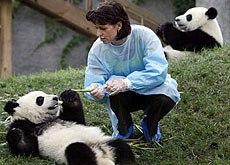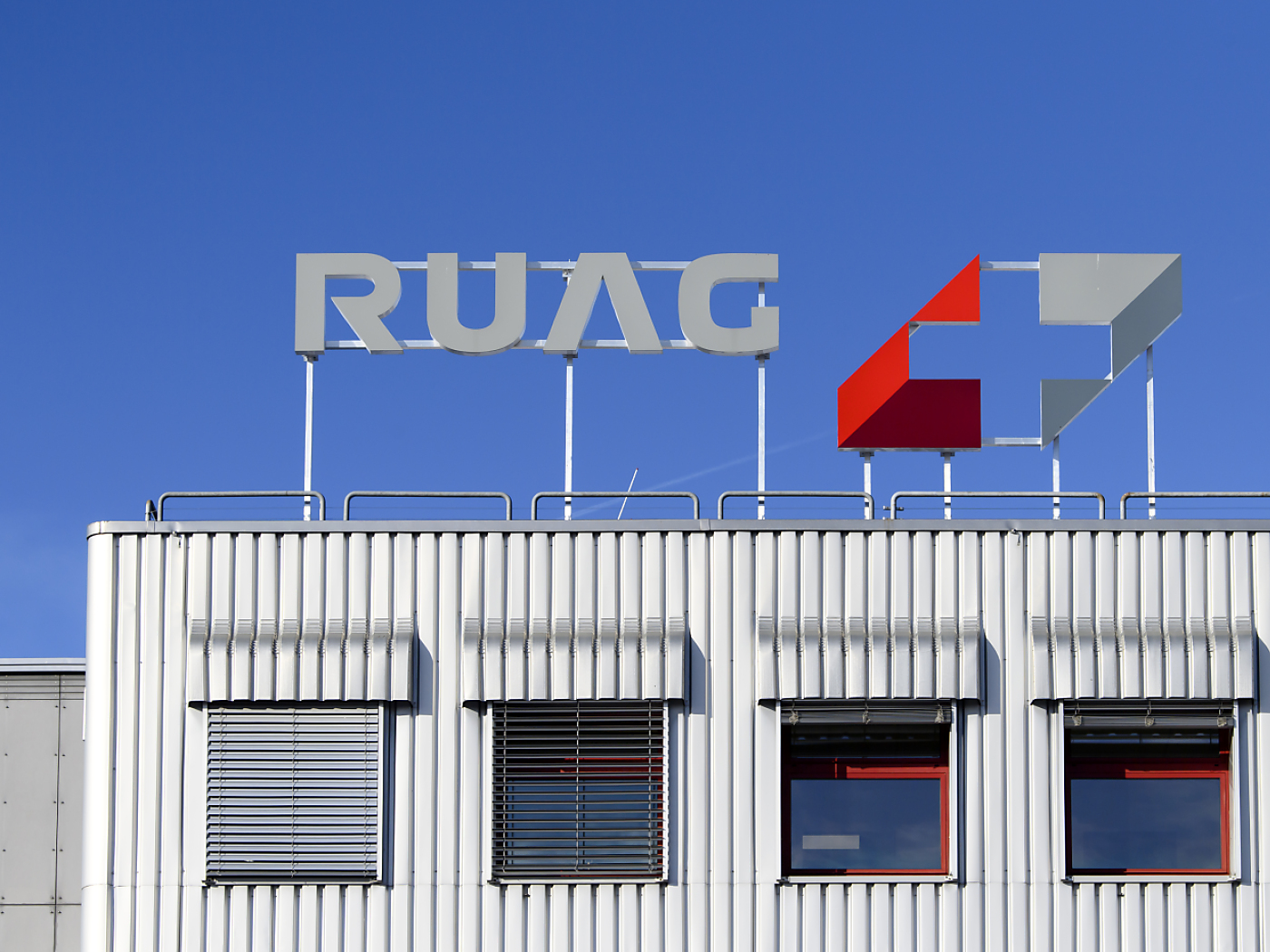China visit yields few tangible results

Swiss Economics Minister Doris Leuthard will not return home from her four-day visit to China totally empty-handed.
Leuthard said on Friday she was satisfied with the results of the trip and the signing of a declaration aimed at establishing a free trade accord was the “highpoint”.
Agreement to set up investment and intellectual property rights working groups was also seen as a breakthrough, but a number of commercial obstacles between both countries still remain unresolved.
“Although there is still work to do, I am happy with the results,” Leuthard told Swiss public radio. “Before coming to China I wasn’t sure we would be able to strengthen bilateral relations regarding the free trade accord.”
Leuthard led a joint delegation of government and business officials to China visiting Beijing, Tianjin, Sheng-Du and Canton; they now travel on to Vietnam.
“The trip got off to a great start,” she added, referring to the joint declaration signed on Sunday with Chinese Commerce Minister Bo Xilai. Both countries will now pursue work on the free trade agreement separately.
“We now have to keep up the pressure,” said the economics minister. “The decisive element is if Bo Xilai accepts an invitation to the World Economic Forum in Davos next January.”
Intellectual property rights
In their talks Leuthard played a clever hand by agreeing to recognise China as a market economy – a key buffer against trade disputes between the two countries over the price applied to Chinese goods.
Switzerland’s partners within the European Free Trade Agreement (Efta), Norway and Iceland, have already made a similar move – unlike the European Union.
Oslo is also looking into the possibility of a free trade agreement with China, while Reykjavik is entering the first phase of trade negotiations with Beijing.
Discussions between Leuthard and her Chinese counterparts mainly focused on the free trade accord, so other important commercial issues for Switzerland, such as high import tariffs on watches and on other industrial sectors, were only touched upon so as not to pressure the Chinese hosts.
Leuthard also saw progress on the subject of intellectual property rights with the signing of a declaration of intent between the two countries, but this is thought unlikely to have an immediate impact on the problem of commercial piracy of products, machines and technical processes.
But other commercial restrictions between the two countries, such as those concerning the pharmaceutical industry, remain unresolved.
Approval procedures appear extremely slow, complained pharmaceutical representatives with the delegation. The same remark was also made by the banking sector, although recent progress has been made.
Outside the trade talks, the minister said she was impressed by the seriousness of the environmental problems that China was trying to come to grips with.
Human rights were not an issue during talks with the ministers. During her meeting with vice-president, Hui Liangyu, Leuthard evoked the “improvement in people’s conditions” with regard to the huge gap between the rich and poor in China.
Leuthard will travel to Vietnam on Saturday where she will meet President Nguyen Mihn Triet and Prime Minister Nguyen Tan Dung and is due to sign several economic cooperation agreements.
swissinfo with agencies
Exports to China: SFr3.47 billion ($2.85 billion) or 2.1% of overall Swiss exports, according to 2005 figures by Seco.
Machinery industry: SFr1.67 billion (+3.7% on 2004)
Chemical products: SFr362 million (+37%)
Watchmaking: SFr352 million (+26%)
Pharma products: SFr260 million (+24%)
Optical and medical instruments: SFr252 million (+11%)
Exports account for 2.1% of total Swiss exports in 2004.
Imports from China: SFr3.38 billion, or 2.1% of Switzerland’s imports.
Machines: SFr826 million (+13%)
Textiles: SFr586 million (+13%)
Chemical products: SFr436 million (+66%)
Watchmaking: SFr305 million (+20%)
During her trip, Leuthard visited a factory in Chengdu, capital of Sichuan province, which was co-financed by the State Secretariat for Economic Affairs (Seco). Members of the Swiss delegation were surprised by the young age of the factory workers.
The minister herself raised the issue with one of the workers. “He told me he was 17 and was doing an apprenticeship. But I still had the impression he was younger than that,” she commented.
“You shouldn’t jump to conclusions,” said Leuthard. “But I’m going to follow it up. It’s in Switzerland’s interest not to support child labour.”

In compliance with the JTI standards
More: SWI swissinfo.ch certified by the Journalism Trust Initiative











You can find an overview of ongoing debates with our journalists here . Please join us!
If you want to start a conversation about a topic raised in this article or want to report factual errors, email us at english@swissinfo.ch.